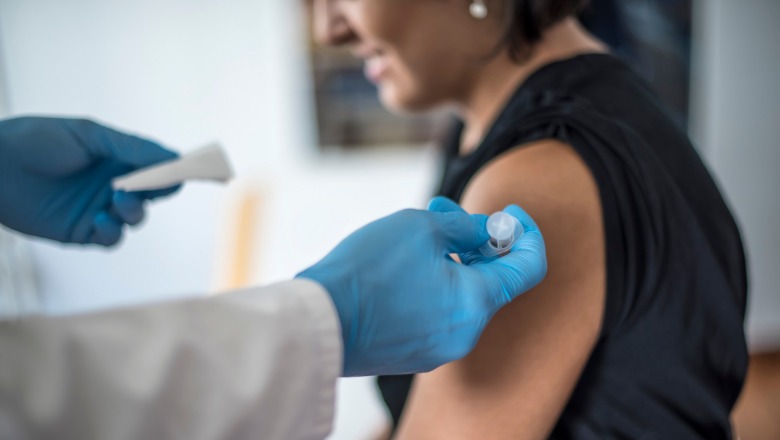New York: If you’re wondering why after two vaccination doses and a booster shot, you still got sick from the Omicron strain of Covid-19, one possible answer may be that antibodies fighting the original virus may be weaker against the highly infectious variant.
While fully vaccinated and boosted people produce a high level of antibodies that work against the original strain of SARS-CoV-2, the same tiny defenders don’t do as well in preventing the Omicron strain from attacking healthy cells, found researchers at Johns Hopkins University in the US.
“Previous research has shown vaccine-induced antibodies respond to the original strain of SARS-CoV-2 by inhibiting the virus’s ability to bind to angiotensin-converting enzyme 2 [commonly known as ACE2], the receptor on a cell’s surface through which SARS-CoV-2 gains entry,” said Joel Blankson, Professor of medicine at the varsity’s School of Medicine.
“Our study suggests those same antibodies yield less ACE2 inhibition with the Omicron strain, opening the door to a breakthrough Covid-19 infection,” he added.
For the study, published in the Journal of Clinical Investigation Insight, Blankson and team analysed both the humoral (SARS-CoV-2 specific antibodies circulating in the bloodstream and produced by B lymphocytes, or B cells) and cellular (direct attack on the virus by T lymphocytes, or T cells) immune responses in 18 healthy and fully vaccinated people, who experienced breakthrough infections within 14 to 92 days after receiving a Covid vaccine booster.
The humoral and cellular immune responses of those participants with breakthrough infections were compared with those from a control group of 31 participants, ages 21 to 60, who also received Covid vaccinations and boosters, and had no prior infection with SARS-CoV-2.
“When we tested antibody-mediated inhibition of SARS-CoV-2 spike protein binding to ACE2, we found that serum from study participants with breakthrough Covid-19 – most likely the result of Omicron infection – had antibodies that strongly stopped binding by the original strain virus as expected but didn’t carry out that function as well when responding to the Omicron strain,” Blankson said.
The levels of antibodies that inhibited spike protein binding to ACE2 – high for original strain virus but reduced for Omicron – were similar for both the participants with breakthrough infections and those in the control group.
“The comparable strong T cell responses for the original and Omicron strains could explain why people, who have breakthrough Covid-19 cases typically experience only mild symptoms during the course of their illness,” Blankson explained.
(IANS)



















